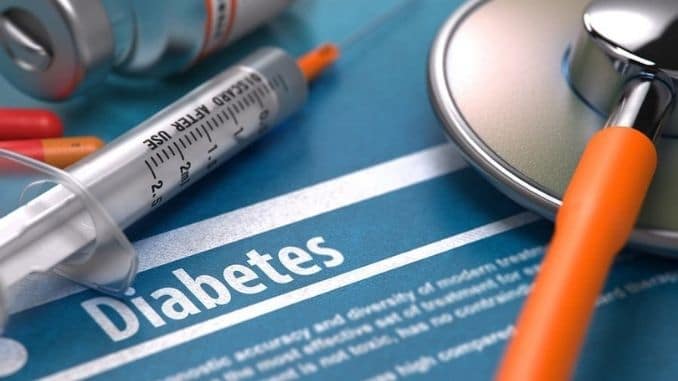
Diabetes affects at least 422 million people worldwide. Despite being so common, many misconceptions still surround this disorder. One of the best ways to prevent or treat a disease is by educating yourself. Let’s look at some of the most common myths about diabetes. We’ll also have a chance to see how you may be able to avoid having problems with high blood sugar.
What Is Diabetes?
Diabetes is a disease caused by problems with insulin. You can imagine that insulin is like a key that opens doors in your cells to let sugar in. If there’s not enough insulin, then the doors stay shut. That’s what happens in type 1 diabetes — not enough insulin. Now, if the keyholes are distorted, the key won’t open the door. That’s type 2 diabetes — insulin is present, maybe even a lot, but it gets rejected by the cells.
In both cases, the result is too much glucose (sugar) in the blood and not enough in the cells. Nobody’s exactly sure what causes diabetes, but it may be due to genetic factors or even infections. Increasingly, physicians recognize that diabetes is more of a spectrum or cluster of disorders rather than just one disease. Still, the consensus is that there are two forms of the disease: type 1 and type 2.
Myth 1: Everyone Who Has Diabetes Will Need Insulin Shots
When you are diagnosed with diabetes, your doctor determines if you have type 1 or type 2. Type 1 diabetics often need shots right away since their pancreas does not produce enough insulin. In type 2 diabetes, oral medications are often used first to help the body’s cells absorb insulin or help the pancreas release more insulin.
Some persons with type 2 diabetes will never require insulin at all. Others may require the hormone only if they get very sick. Still others will eventually require insulin shots daily just like type 1 diabetics. Getting plenty of exercise and following nutritionist or dietitian advice may help prevent or delay the need for insulin in type 2 diabetes.
Myth 2: Eating Too Much Sugar Causes Diabetes
This myth may not be 100 percent false. The truth is, just because you eat sugar does not guarantee you will develop diabetes. Some may have a sweet tooth all their life and never get the disease. However, a diet high in sugar can contribute to obesity, which increases your risk for diabetes.
Also, recent research shows that sugary drinks are associated with an increased risk of developing diabetes. In 2015, The BMJ released a study showing that drinking one sugary drink a day increases type 2 diabetes risk by 18 percent. Another JAMA study found that diabetes risk for females nearly doubles if you go from drinking from one or fewer sugary drinks a week to one or more per day.
Don’t forget that sweetened soft drinks aren’t the only ones that have sugar. Many juices, sports drinks, punches and energy drinks are also high in sugar. So read the label. No matter what the name, it’s still sweet and may be harmful. Sugar may be found under the following names:
- Corn sweetener
- Corn syrup
- Dextrose
- Fructose
- Fruit juice concentrates
- Glucose
- High-fructose corn syrup
- Invert sugar
- Lactose
- Maltose
- Malt syrup
- Raw sugar
- Sucrose
- Sugar syrup
- Cane crystals
- Cane sugar
- Crystalline fructose
- Evaporated cane juice
- Corn syrup solids
- Malt syrup
Myth 3: All Obese People Have Diabetes
Although obesity is a major risk factor for diabetes, not all people who are overweight have diabetes. However, many persons who are obese may also have metabolic syndrome. This means they have high blood pressure, high blood sugar, too much body fat around the waist and abnormal cholesterol and triglyceride levels. Metabolic syndrome increases your risk of heart disease, stroke and diabetes.
Even though it’s important to be aware of obesity as a diabetes risk factor, other risks are also important. All of the following may increase your risk for diabetes:
- Family history
- Physical inactivity
- Being black, Hispanic, American Indian or Asian American
- Advancing age
- Gestational (during pregnancy) diabetes
- Polycystic ovary syndrome
- High blood pressure
- Abnormal cholesterol and triglyceride levels
- Obesity
As you can see, some of these risk factors can be modified. For example, regular exercise and weight control may decrease your risk of developing diabetes.
Myth 4: Diabetes Is Contagious
There is no evidence that myths about diabetes is contagious.. The disease cannot be transmitted from one person to the another. Still, there are some theories that diabetes might be the side effect of a viral or bacterial illness. There’s a lot of research looking into this, but the exact mechanism is unknown. There is some evidence to support both type 1 and type 2 diabetes being caused by an infection in some people.
Myth 5: Skinny People Don’t Get Diabetes
Even though about 85 percent of people with type 2 diabetes are overweight, that also means 15 percent are normal weight. Also, normal weight persons with the disease might be at higher risk for serious side effects like heart disease. One of the reasons for this may be that thin diabetics may have more visceral fat. This kind of fat is found within the body attached to your internal organs like the intestines.
Also, in type 1 diabetes, many people are of normal weight when they get diagnosed. In fact, this form of diabetes is sometimes called “juvenile onset” diabetes since it can appear in children or youths independent of their body weight.
Myth 6: If Don’t Have Symptoms, I Don’t Have Diabetes
Unfortunately, many people believe that the lack of symptoms means no disease is present. The truth is, many people with high blood sugar have no symptoms at all. Still, upon further questioning, some symptoms might be uncovered. For example, if you are a bit fatigued all the time, it might mean your blood sugar is running high. The classic signs of high blood glucose are increased thirst, increased volume of urine and increased hunger. However, not everyone with diabetes has these symptoms.
Diabetes elevates your risk for heart disease, kidney problems, eye disorders, nerve damage and poor circulation. Detecting and treating the disease may reduce the chances of these things happening. For this reason, the American Diabetes Association recommends all adults should be screened for diabetes every three years starting at age 45.
For those with other risk factors for heart disease, such as obesity, high blood pressure or high cholesterol. Some doctors recommend screening for diabetes no matter what your age.
Myth 7: Women with Diabetes Should Not Get Pregnant
With today’s advanced medical understanding of myths about diabetes, women who have the disorder can get pregnant and have healthy children. However, diabetic women do have a higher risk of preterm births and high birth weight babies.
The best way to avoid problems is to have good blood sugar control and overall good health before you get pregnant. Talk to your doctor about your plans to have a child, and then you can begin to prepare for pregnancy. During pregnancy, your doctor will closely monitor your blood sugar and make adjustments to your medications if needed. In some cases, you may have to discontinue diabetes pills and take insulin during pregnancy and shortly after delivery. Plus, a close eye will be kept on your blood pressure and kidney function.
Myth 8: Diabetics Can’t Eat Sugar or Sweets
Just like any other person, sugary foods should be eaten in moderation by people who have diabetes. It’s true that people with diabetes who consume a large amount of sugar may end up having very high blood glucose levels. Still, that doesn’t mean that an occasional small treat is forbidden. The key is moderation in the amount and frequency of eating sweets.
Myth 9: People with Diabetes Catch a Cold or the Flu Easier
If you have diabetes, you have the same chances of catching a cold or the flu as any other person. Still, it’s recommended that people with diabetes get a flu shot every year. Why? The reason is that if you have diabetes, and you get sick, it’s harder to control your blood sugar.
Myth 10: Diabetics Can Eat as Much Fruit as They Want
Fruit is healthy, but these foods also contain sugar and carbohydrates. Eating too much, or at the wrong time, can raise your blood sugar levels. The same goes for starches like pasta, bread, rice and potatoes. None of these foods should be eaten without some measure of control. But they aren’t forbidden, either.
The best approach is to consult with your nutritionist and doctor about your diet. They can help you understand which foods affect your blood sugar, and then develop a healthy meal plan for you.
Conclusion
Diabetes is a common and sometimes complex disease. Doctors still don’t understand everything about it. There are steps you can take that may prevent or delay the onset of the disorder. Even if you have myths about diabetes, it doesn’t mean you can’t lead a happy and productive life.
If you are looking for ways on how to bring back your natural vitality while relieving chronic inflammation and boosting up the natural fat burning hormones of your body, then check out the Best Foods that Rapidly Slim & Heal in 7 Days program, here!




